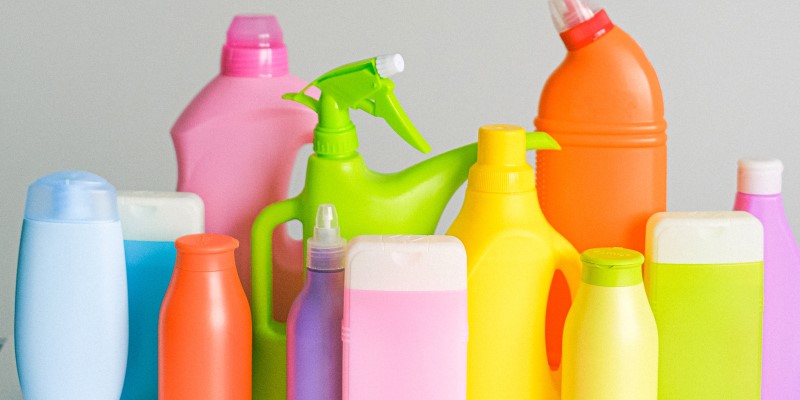Transitioning to an organic lifestyle can be a rewarding journey that benefits your health, promotes sustainability, and supports local farmers. In this step-by-step guide, we will explore organic living principles, from choosing organic foods to incorporating organic personal care products, creating an organic cleaning routine, and embracing organic fashion and clothing.
When it comes to understanding organic living principles, it is important to recognize the importance of natural and sustainable practices. Organic farming methods prioritize:
- soil health
- biodiversity
- ecological balance
By choosing organic foods, you nourish your body with fresh and wholesome ingredients and support environmentally-friendly practices that minimize synthetic pesticides and fertilizers. From fruits and vegetables to meats and dairy products, transitioning to an organic diet can have numerous health benefits while reducing exposure to harmful chemicals commonly found in conventionally grown produce.
Transitioning to organic personal care products is another crucial step in embracing an organic lifestyle. By opting for natural and certified-organic alternatives like shampoos, soaps, lotions, and cosmetics made from plant-based ingredients, you are taking better care of your well-being and contributing to a cleaner environment. Let’s take a look at these in more detail.
Table of Contents
Key Takeaways
- Transitioning to an organic lifestyle promotes sustainability and supports local farmers.
- Organic food reduces exposure to pesticide residue and potentially lowers the risk of certain diseases.
- Choosing certified organic or all-natural products for personal care contributes to a more sustainable planet.
- Using organic cleaning products positively impacts health and the environment, reducing exposure to harmful chemicals and waste from traditional cleaning products.

What Are Some Principles Of Organic Living?
Now that you’ve decided to embrace an organic lifestyle, it’s time to delve into the principles guiding your journey towards a healthier and more sustainable way of living. What are the sort of things that you need to consider when you think about organic living? Here are 5 principles to consider:
- Natural and Organic Foods: Choose foods that are grown and produced without the use of synthetic chemicals, pesticides, and genetically modified organisms (GMOs). Opt for organic fruits, vegetables, grains, and meats to minimize your exposure to harmful chemicals and support sustainable agricultural practices.
What are Genetically Modified Organisms (GMOs)? GMOs are living organisms whose genetic material has been altered through genetic engineering in a lab. You can read more about the pros and (huge!) cons of GMOs in our article The Benefits Of Organic Food: Why It’s Worth The Investment.
- Sustainable Agriculture: Support farming methods that prioritize soil health, water conservation, and biodiversity. Organic farming techniques, such as crop rotation, composting, and natural pest control, help maintain the ecosystem’s balance and reduce the negative impact of conventional agricultural practices.
What is Crop Rotation? Planting crops in a sequence on the same piece of land to improve soil health and nutrients, and help prevent weeds and pests. An example of crop rotation: A farmer plants corn, which takes nitrogen from the soil. After harvesting the corn, the farmer plants beans, which return nitrogen to the soil.
- Chemical-Free Living: Reduce your reliance on synthetic chemicals in your daily life. This includes using natural cleaning products, personal care items, and household goods. Avoid products containing harsh chemicals like parabens, phthalates, and artificial fragrances.
What are Parabens? Parabens have been used in cosmetics since the 1920s. Cosmetics include ingredients that can degrade, and parabens are included in the product to increase its shelf-life
How about Phthalates? Phthalates are added to plastics to soften them and make them harder to break. They are commonly used in household furnishings, building materials, electronics, insecticides, children’s toys, skin care products, cosmetics, perfumes, and food packaging.
- Environmental Stewardship: Make conscious choices that contribute to a healthier planet. Reduce, reuse, and recycle whenever possible. Minimize waste by using reusable containers, bags, and bottles. Support eco-friendly practices that reduce pollution and minimize your carbon footprint.
What’s my Carbon Footprint? A carbon footprint is the total amount of greenhouse gases (including carbon dioxide and methane) that are generated by our actions. These include things like driving, how we use energy, our diet, and the waste we produce.
- Connection to Nature: Foster a strong connection with the natural world. Spend time outdoors, engage in activities like gardening, hiking, or camping, and appreciate the beauty and diversity of the environment. This connection can enhance your overall well-being and increase your awareness of the importance of sustainable living.
Being Mindful is a great way to be more present in the here and now and increases self-awareness and reduces stress. It’s also a great way to connect with nature.
Choosing Organic Foods
To truly embrace a healthier approach to eating, it’s really important to make mindful choices about the foods you eat. One way to do this is by choosing organic foods. Organic food benefits both our health and the environment. Unlike conventionally grown produce that you find in supermarkets, organic fruits and vegetables are grown without synthetic pesticides, herbicides, or GMOs. This means that when you choose organic, you reduce your exposure to potentially harmful chemicals while supporting sustainable farming practices.
When we speak about meat and dairy products, opting for organic is equally important. Animals raised for organic meat and dairy are fed an organic diet free from antibiotics and growth hormones. This ensures that you’re consuming meat and dairy products free from potentially harmful substances and promotes animal welfare by providing them with a natural lifestyle.
Look for the ‘organically certified’ label to ensure that your products are organic. This label guarantees the product has met strict standards set by the National Standard for Organic and Biodynamic Produce. These standards include requirements for soil quality, pest control, livestock practices, and more. By choosing products with this certification label, you can have peace of mind knowing that they have been produced following these rigorous guidelines.
Did you know? Australia is one of the few remaining developed countries without domestic regulation of the word ‘organic’ in produce labelling. This means that you must look for the ‘Australian Certified Organic Standard‘ logo on the packaging to ensure that it has passed all testing and qualifies as a fully organic product.
By consciously choosing organic foods, we can make a positive impact on our health as well as support sustainable agricultural practices. From fruits and vegetables to meat and dairy products, countless options are available in the market today. So next time you go grocery shopping, remember to prioritize your health and consider making the switch to organics for a better future for ourselves and our planet.

Transitioning to Organic Personal Care Products
Switch to organic personal care products and pamper yourself with natural ingredients that nourish your body from head to toe. Organic skincare is gaining popularity as people become more aware of the potential harm synthetic chemicals can cause to their health and the environment. By switching to natural beauty products, you are taking care of your skin and contributing to a more sustainable planet.
When transitioning to organic personal care products, it’s important to start by reading labels carefully. Look for products that are certified organic or made with all-natural ingredients. Avoid products that contain harmful chemicals such as parabens, phthalates, and synthetic fragrances. These chemicals can be absorbed through your skin and may have long-term effects on your health.
Switching to natural beauty products doesn’t mean compromising on effectiveness or variety. Many brands now offer a wide range of organic skincare options, from cleansers and moisturizers to makeup and hair care products. Experiment with different brands and find what works best for you. Everyone’s skin is unique, so what works for someone else may not work for you.
By switching to organic personal care products, you are taking care of your own well-being and supporting sustainable practices in the beauty industry. Choose wisely and enjoy pampering yourself with natural ingredients that will leave you feeling good inside and out.
Creating an Organic Cleaning Routine
When incorporating organic cleaning products into your routine, it’s essential to consider their impact on both your health and the environment. Green cleaning products are a great alternative to conventional cleaners that contain harsh chemicals. These environmentally-friendly options are made from natural ingredients and do not release harmful toxins into the air or waterways. Green cleaning products can create a healthier living environment for yourself and your family.
Natural cleaning remedies are another option when transitioning to an organic cleaning routine. Many common household items, such as vinegar, baking soda, and lemon juice, have powerful cleaning properties. These natural ingredients can effectively clean surfaces without leaving behind any harmful residues. They are often more affordable than commercial cleaners and can be easily found in most homes.
Check out our article on Maintaining a Chemical-Free Home, which includes some easy cleaning recipes made from natural, simple ingredients!
In addition to being better for your health and the environment, organic cleaning products also support sustainable practices. Many of these products use biodegradable packaging materials and are produced using renewable resources. By choosing organic cleaners, you reduce waste generated by traditional cleaning products.

Transitioning to an organic cleaning routine is a simple yet impactful step towards living a more sustainable lifestyle. Opting for green cleaning products and natural remedies can reduce exposure to harmful chemicals while maintaining a clean home environment. Take the time to research different brands and DIY recipes that align with your values and needs. With small changes in your daily habits, you can make a big difference in creating a healthier home for yourself and future generations.
Embracing Organic Fashion and Clothing
Embracing organic fashion and clothing allows you to positively impact the environment while looking stylish and feeling good about your choices. Sustainable fashion trends are gaining popularity as people become aware of fast fashion’s environmental and social impacts. By opting for eco-friendly clothing brands, you can support companies prioritising ethical practices and using sustainable materials in their production processes.
One major sustainable fashion trend is the rise of slow fashion. Slow fashion focuses on creating high-quality garments made to last rather than following the fast-paced cycle of disposable fashion. This means investing in timeless pieces that will withstand trends and wear over time. By choosing well-made clothing, you reduce your contribution to waste and support brands that value craftsmanship and fair labour practices.
Eco-friendly clothing brands are crucial in promoting sustainability within the fashion industry. These brands prioritize using organic materials, such as organic cotton or hemp, grown without synthetic pesticides or fertilizers. Additionally, they may use recycled fabrics or upcycle pre-existing materials to reduce waste. Some popular eco-friendly clothing brands include Patagonia, Eileen Fisher, and Reformation. Supporting these brands encourages companies to adopt sustainable practices and contribute to a greener future.

Incorporating organic fashion into your lifestyle doesn’t mean sacrificing style or breaking the bank. An increasing range of options is available for conscious consumers who want to look fashionable while minimizing their environmental impact. Thrift shopping is one way to embrace sustainable fashion on a budget by giving pre-loved clothes a new life instead of buying new items all the time. You can also explore local designers who focus on eco-friendly practices or consider renting clothes for special occasions instead of purchasing them outright.
Overall, embracing organic fashion and clothing is a meaningful step towards reducing our ecological footprint in the world of style. By staying informed about sustainable fashion trends and supporting eco-friendly clothing brands, we can positively impact the environment while looking and feeling great. Remember, every choice you make in your fashion journey can shape a more sustainable future for all.
Conclusion
Transitioning to an organic lifestyle is a step-by-step process that requires understanding organic living principles and making conscious choices in various aspects of your life. By choosing organic foods, you can support sustainable farming practices and reduce exposure to harmful chemicals. Transitioning to organic personal care products allows you to minimize synthetic ingredients and prioritize natural alternatives that are better for your health.
Additionally, creating an organic cleaning routine helps maintain a healthy living environment by using non-toxic products that are safe for humans and the planet. Embracing organic fashion and clothing ensures that you wear clothes made from natural fibres and supports ethical manufacturing practices. Overall, transitioning to an organic lifestyle is about making informed decisions based on evidence-based research and prioritizing your health, sustainability, and environmental responsibility. Start small by incorporating one aspect at a time and gradually embrace all the elements of this holistic approach for a healthier, more eco-conscious way of living.
About the Author

CHARLIE
Hi, my name is Charlie. I’m the founder of Just Organics. I have a background in Environmental Health and am passionate about animal welfare. I have been using organic products for more than ten years and would like to share my love of products made from nature.
I hope you find value in our articles. If there’s anything you’d like us to write about or if you’d just like to connect with us, feel free to send us a message.
